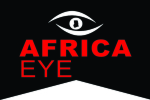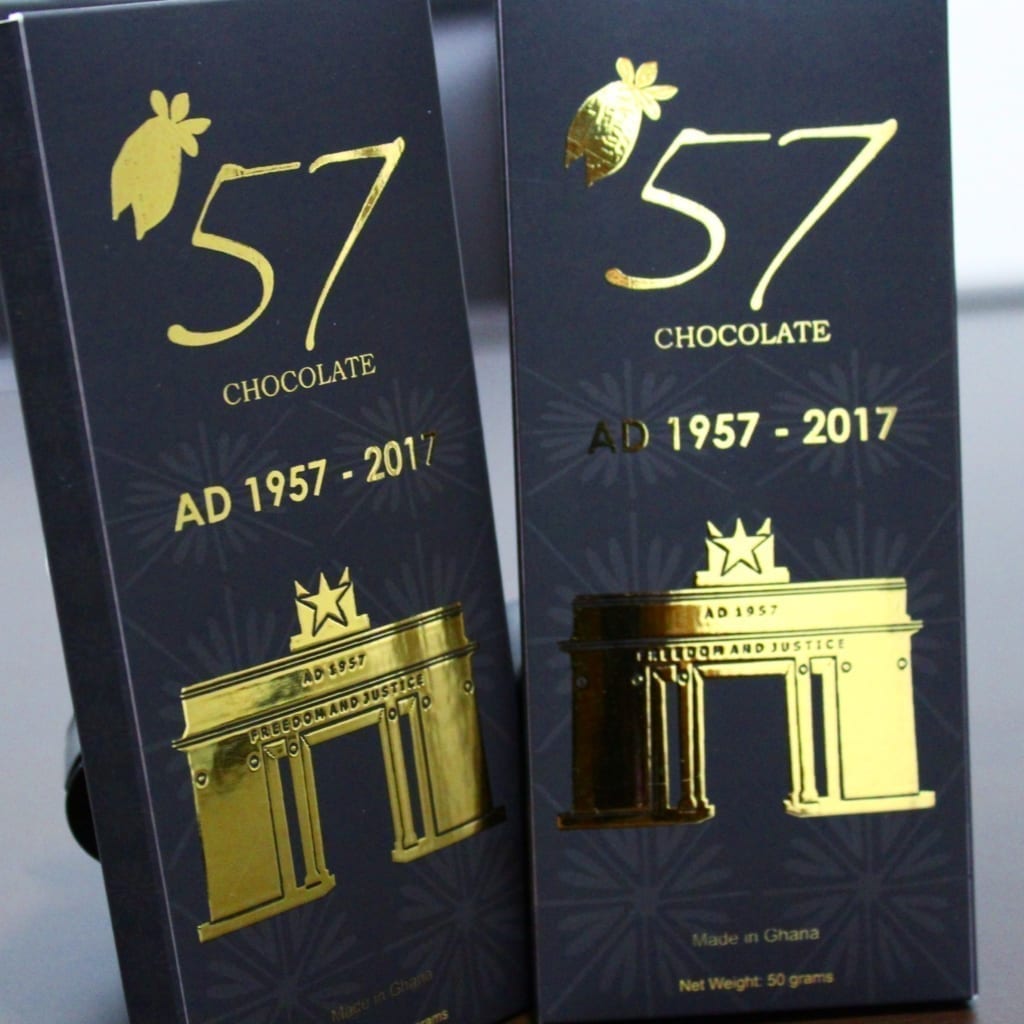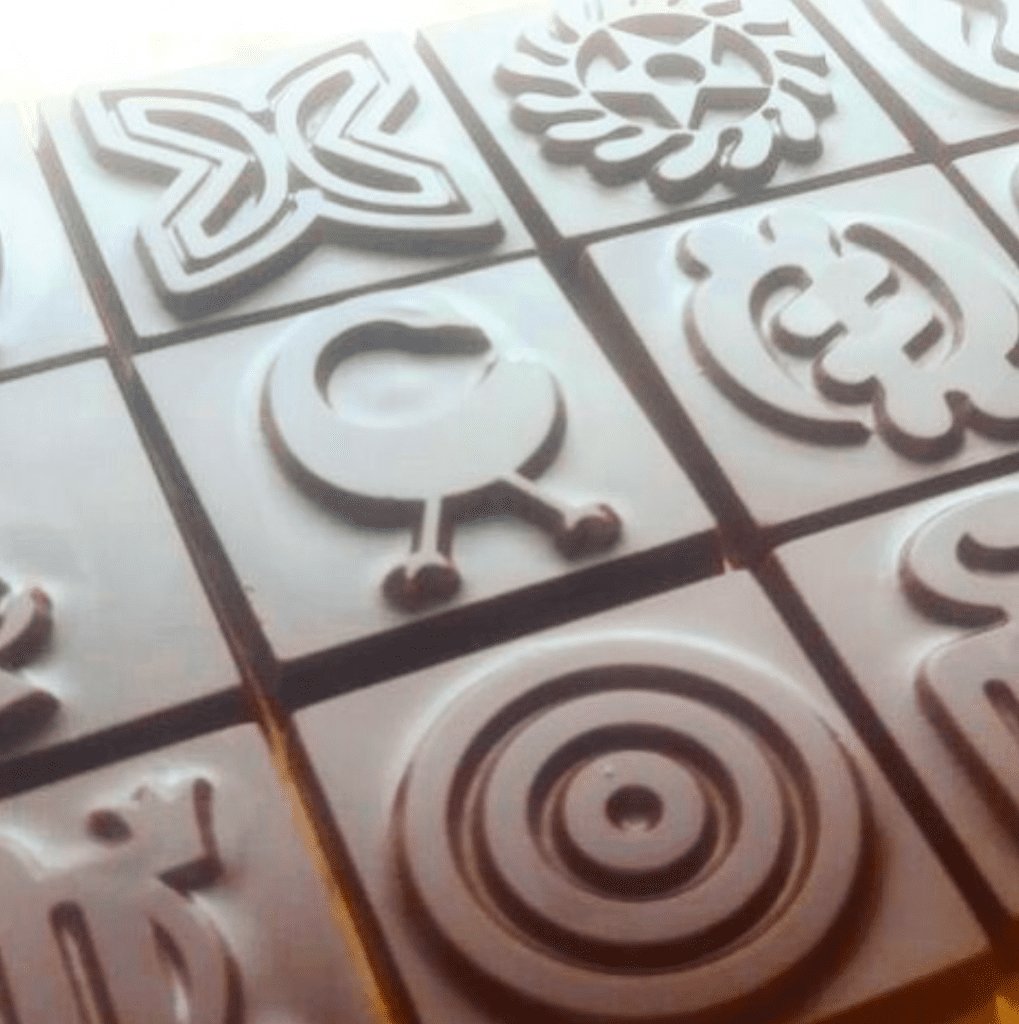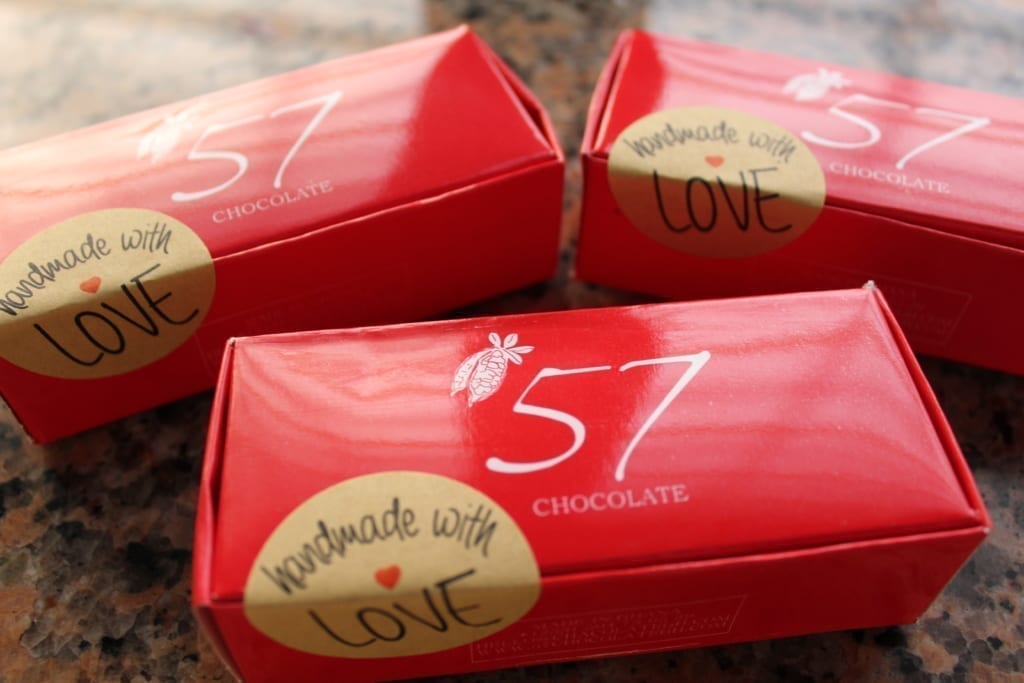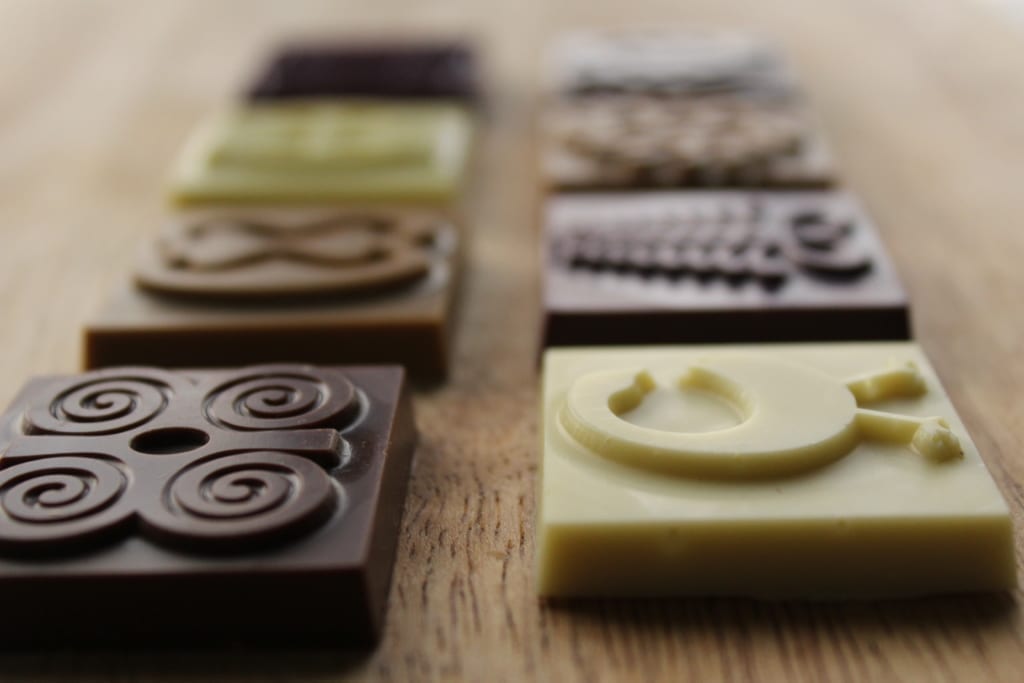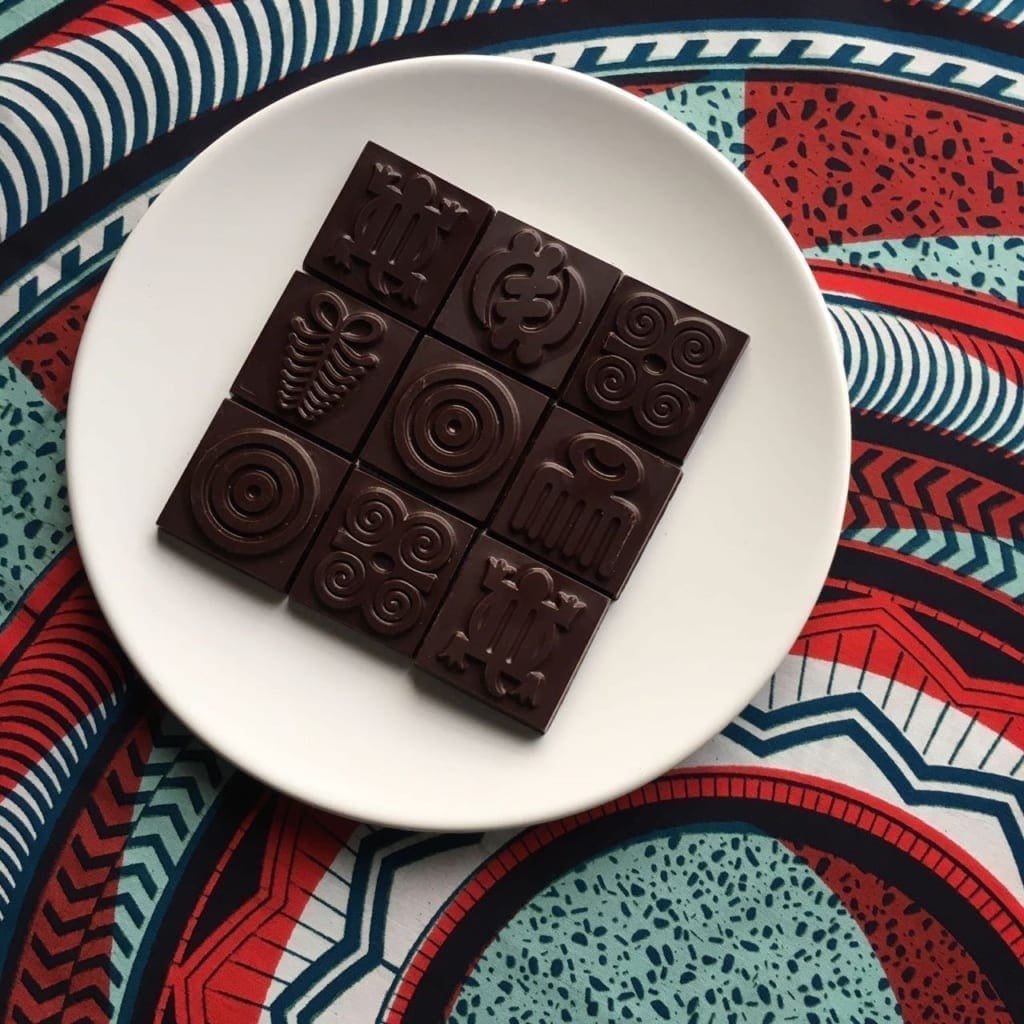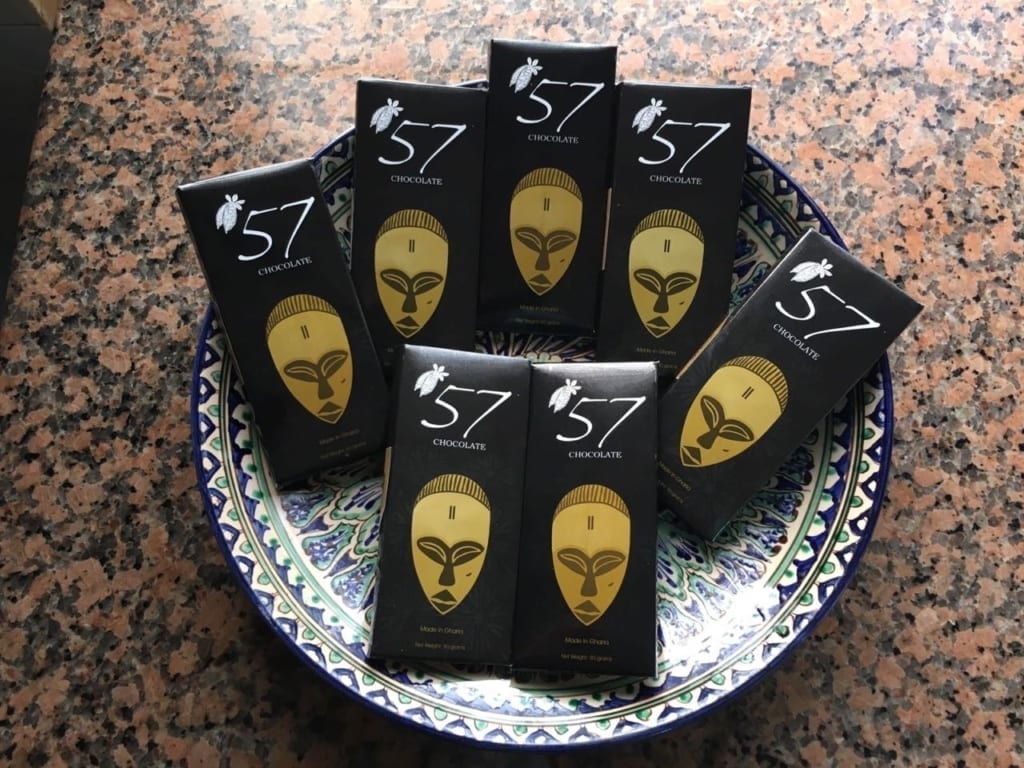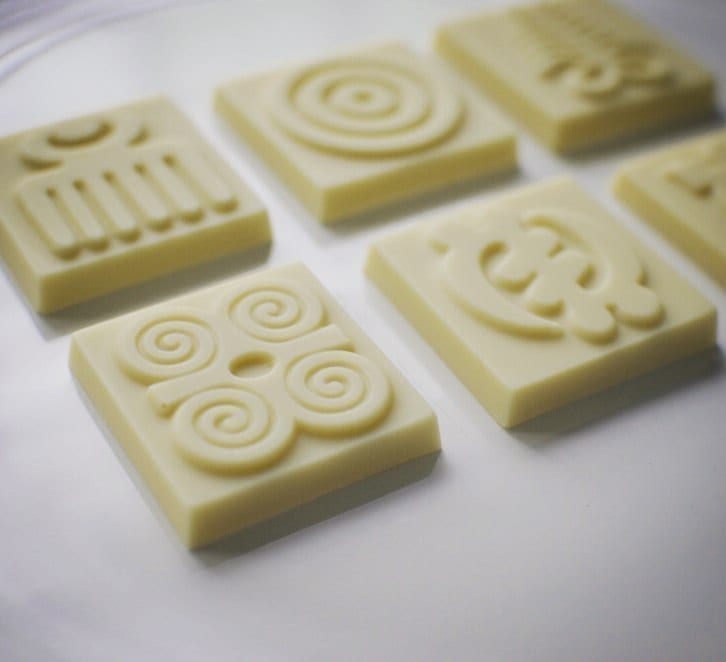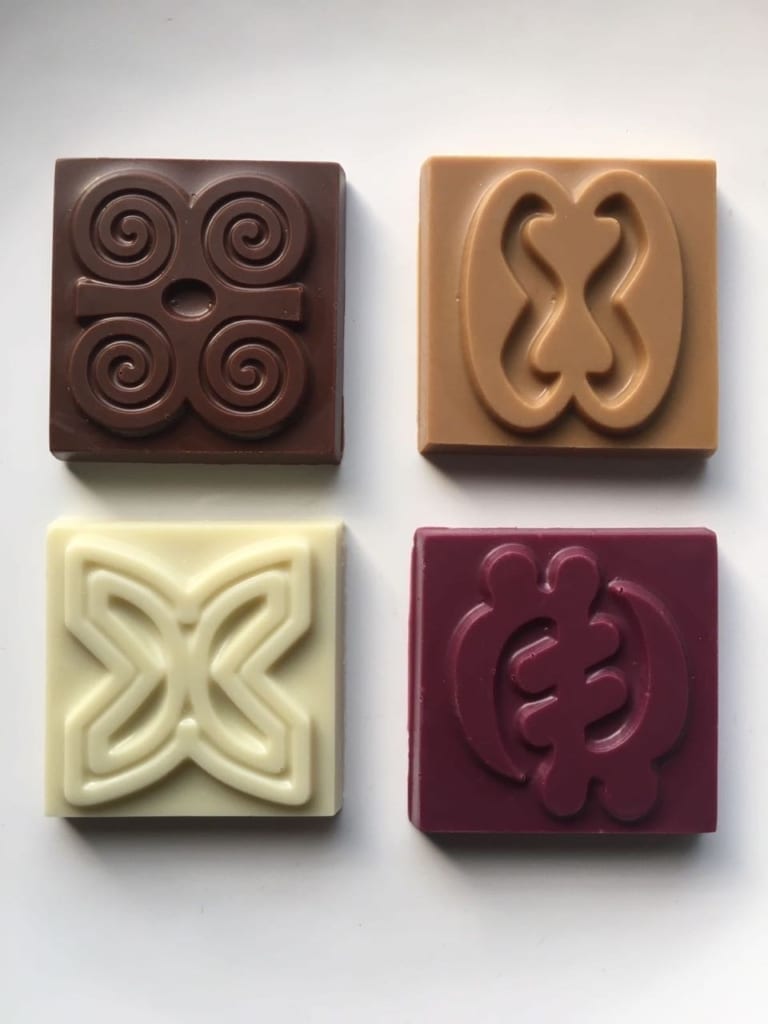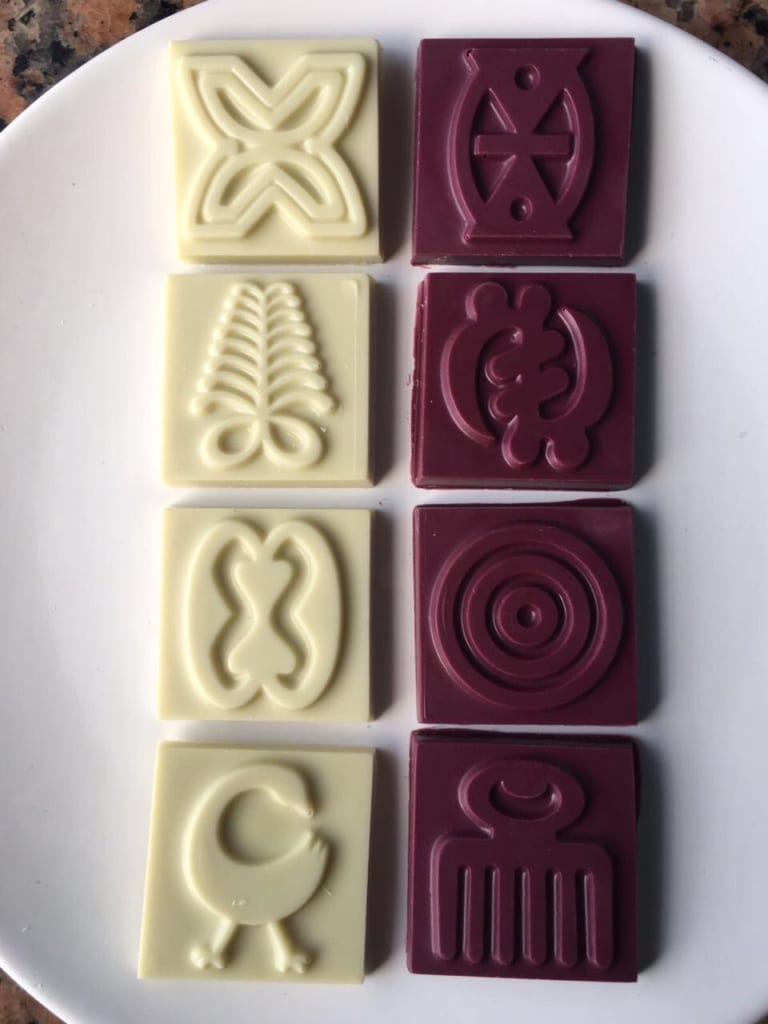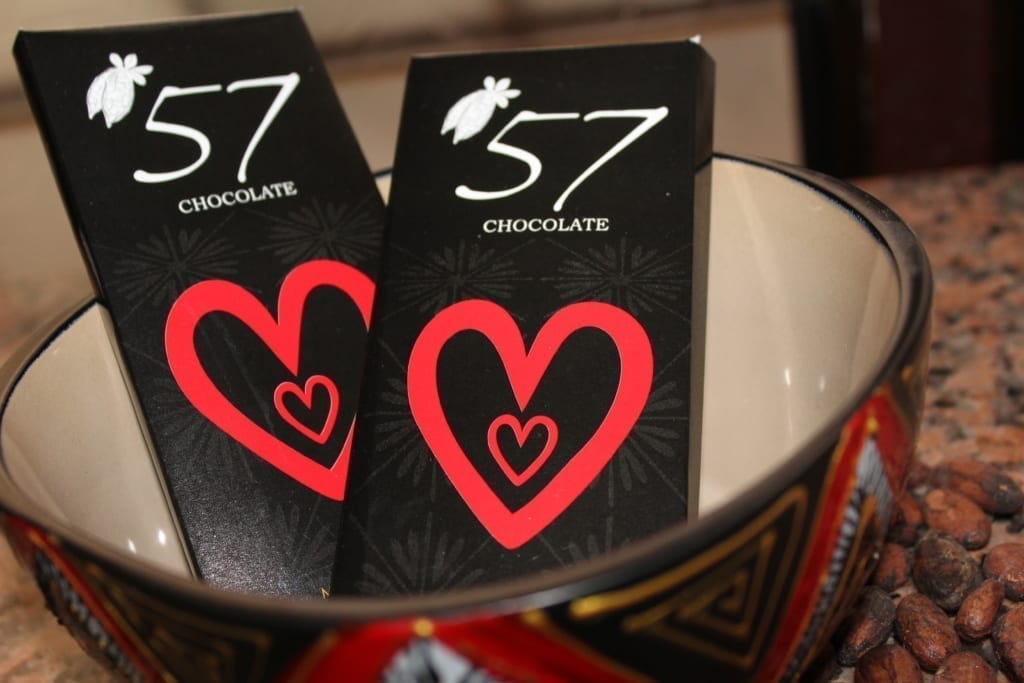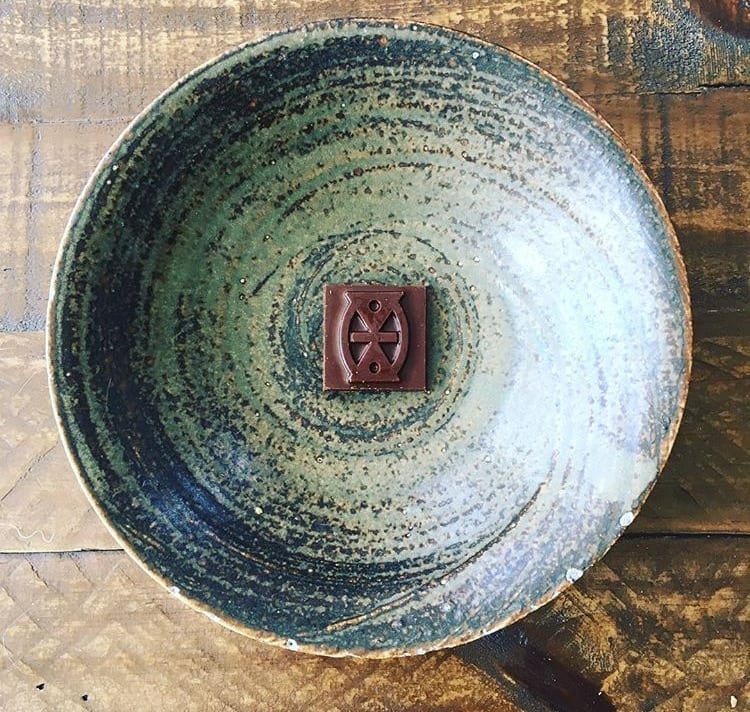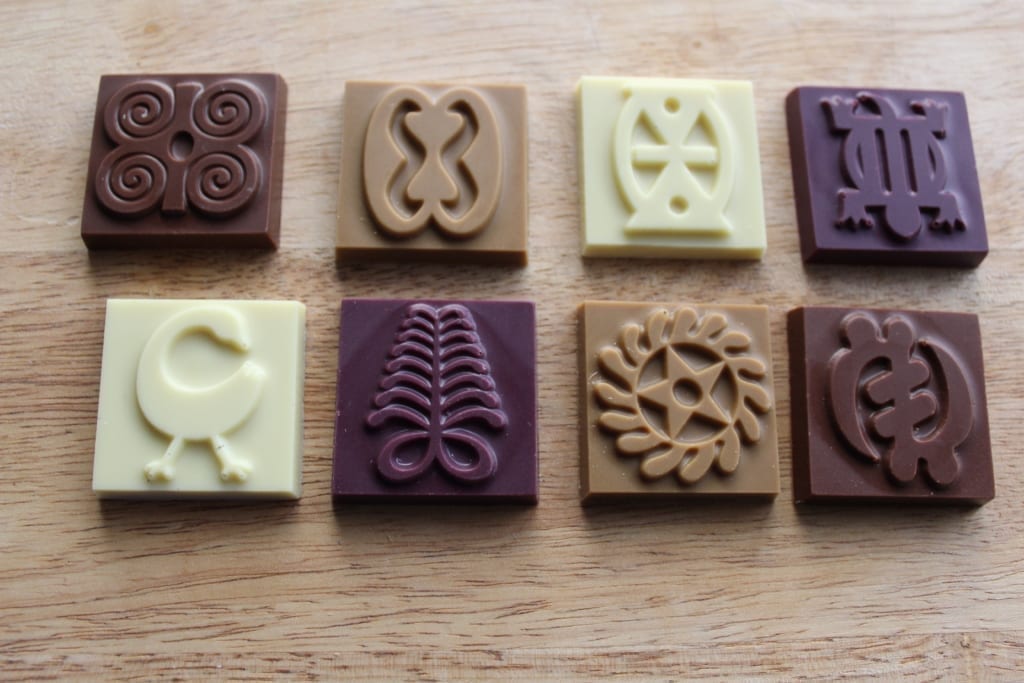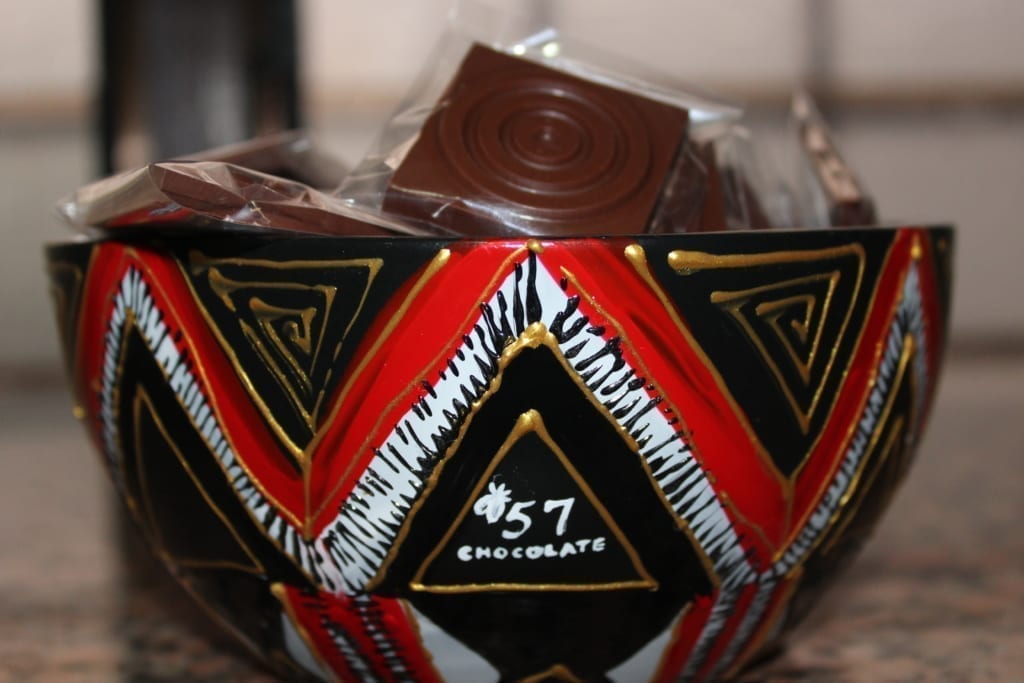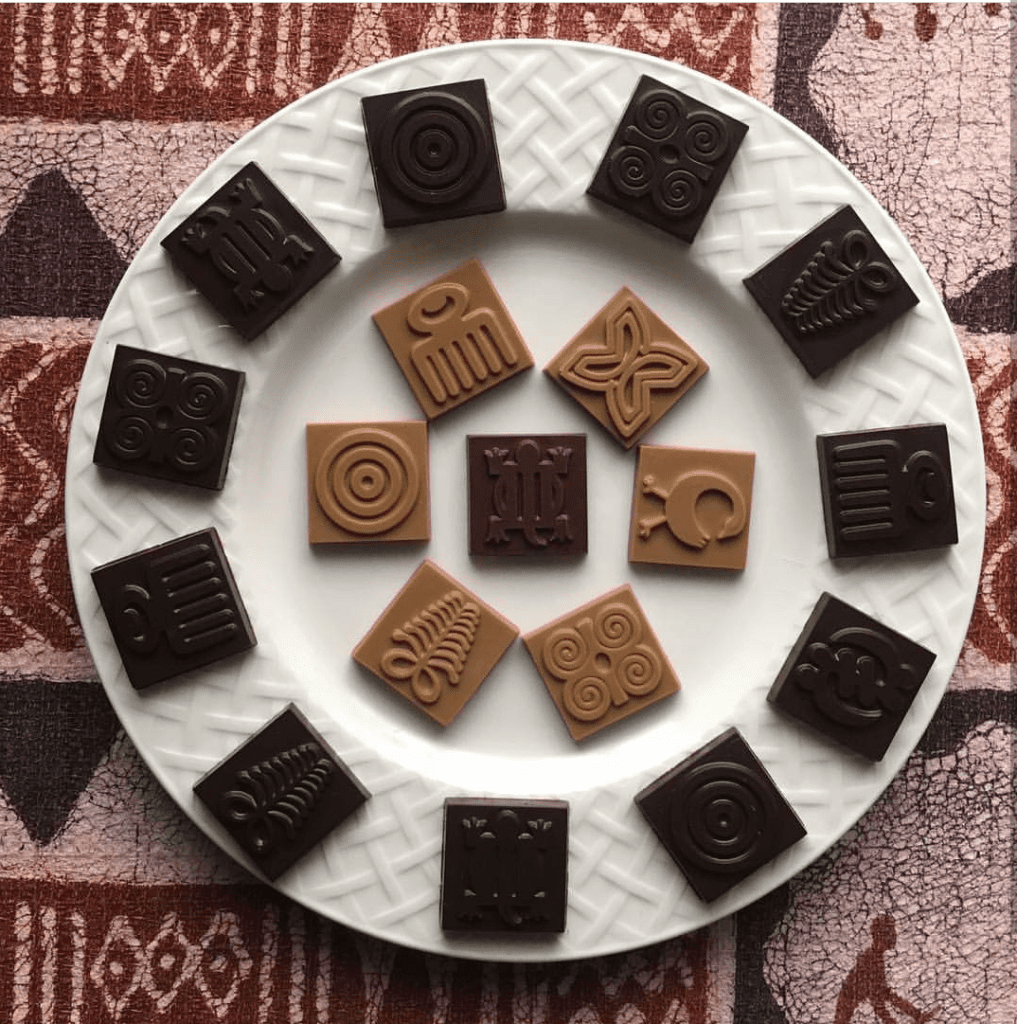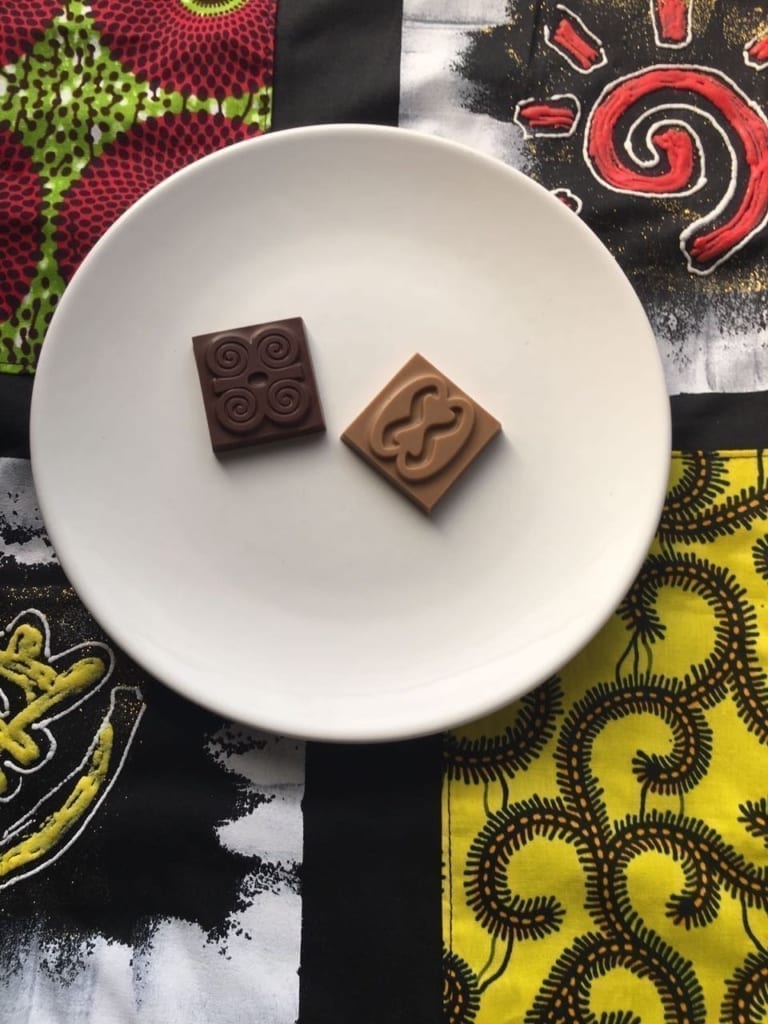Although West African countries produce over seventy percent of world’s cocoa, I’ll bet you can’t name one African chocolate brand. Why? Because most of the Continent’s cocoa is exported to foreign countries that produce their own brands.
Fortunately, there are now African chocolate makers getting into the game. Meet sisters, Priscilla and Kimberly Addison. They are the founders of 57 Chocolate, a Ghanaian made chocolate brand.
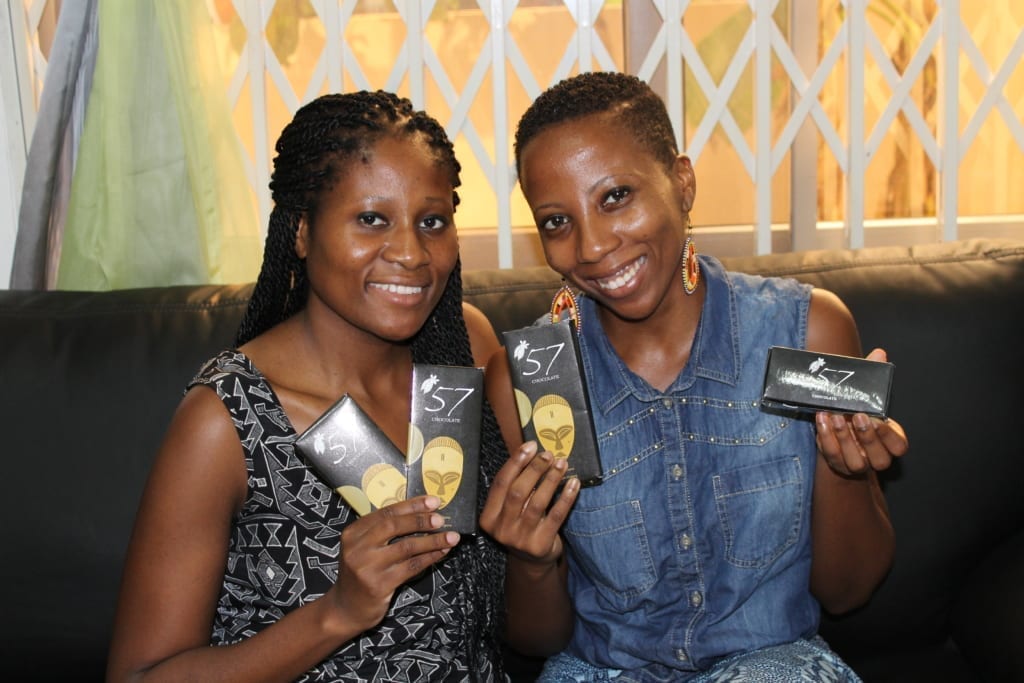
SB: What inspired you to start 57 Chocolate and what does the name mean?
57C: Having spent time living in Geneva, Switzerland, we thought it was strange that Switzerland is known for its chocolate but yet doesn’t grow cocoa, the core ingredient in chocolate. Meanwhile Ghana is the second largest producer of cocoa, but produces very little chocolate itself. We saw a vast need for manufacturing of chocolate in Ghana and across the continent of Africa.
In Ghana, the candy shelves of supermarkets and malls are overflowing with foreign chocolate bars, many undoubtedly made with Ghana’s very own cocoa. Having recognized all this, we were determined to use Ghanaian cocoa to create a Ghanaian brand of chocolate that is reputable locally and internationally. Chocolate really peaked our interest because it allows us a lot of creativity.
We get to experiment with different factors such as how dark to roast the beans, the percentage of cocoa to include, and creating different flavors and parings (e.g. sea salt, coconut shavings etc). We also love chocolate because it really is a healthy treat if you choose chocolate that is high in cocoa content.
The name ‘57 is short for 1957—the year of Ghana’s independence. 1957 was a revolutionary year for the country, not only because it was freed from colonial rule, but it is the year that gave birth to the nation’s “can do” spirit. The name ‘57 is meant to inspire a reawakening of Ghana’s 1957 “can do” spirit.
It is a call and reminder that sometimes in order to go forward, we need to look back at our foundation—our roots. ‘57 Chocolate aims to inspire the people of Ghana, especially the youth to create and develop made in Ghana high quality products.
SB: What has been the most challenging and the most fulfilling part of your entrepreneurial journey so far?
57C: A major challenge for us with starting the business was dumsor– a popular Ghanaian word used to describe the unpredictable power outages. Ghana has been undergoing a power crisis and our business requires a study supply of electricity in order to produce and store our chocolate, since it is made from the cocoa bean to the chocolate bar.
The most fulfilling part of our journey is seeing the joy our chocolate brings to our clients, and knowing that we are adding value to a resource right at home. Many people thought this would be impossible to achieve. Additionally, it’s the support and encouragement that we’ve received from near and far. We have received several inquiries about investments and whether we ship our chocolate abroad.
SB: How important is it to you that African countries manufacture more products instead of importing?
57C: We believe manufacturing is crucial for the growth and survival of any economy. There is a vast need for manufacturing in Ghana and across the continent of Africa. Ghana is the second largest producer of cocoa on the African continent but, very little value is added to the bean itself. We think it’s time to change this narrative.
SB: What are some the different flavors that you produce that are unique to your brand?
57C: Currently, we have 6 signature chocolates: dark (2 kinds including 88 percent baobab and 73 percent dark chocolate), milk, white, mocha latte (coffee flavor) and bissap (hibiscus flavor) chocolate. We pair our chocolates with various ingredients like coconut and sea salt.
Other services we provide include catering for events and chocolate pairings/tastings for groups (a minimum of 6 people).
SB: How important is it that your branding was is on point from the design of the chocolate to the packaging?
57C: Branding from start to finish is incredibly important to us, given that we aim to challenge the status quo of luxury chocolate being only a product of Europe. What is most unique about our brand is that we produce chocolate that is a reflection and celebration of Ghanaian art and culture, particularly through our Adinkra bars.
These bite sized bars are beautifully engraved with visual symbols created by the Ashanti of Ghana. We have a collection of 12 different Adinkra symbols, each representing a concept or a particular meaning such as leadership, beauty, humility, strength and resourcefulness. We will be adding more concepts to our collection in the coming year.
SB: You’ve lived in multiple countries around the world. In what ways has this influence your brand?
57C: Our brand has certainly been influenced by the places we’ve been lucky to call home. Living in Switzerland—(one of the country’s most known for its chocolate) we had the opportunity to sample a lot of quality chocolate and so we wanted to create a brand which also exuded excellence.
Our return to Ghana was simply a re-awakening of the need to manufacture chocolate from bean to bar—right at home. The Adinkra chocolates we offer pay homage to our Ghanaian roots.’57 Chocolate is more than just chocolate. It’s about art and culture. This aspect is reflect in everything we do and our brand as a whole.
Living in multiple countries has also influences our chocolate flavors. For example, having grown up in Dakar, Senegal we drank Bissap (a drink made from hibiscus leaves) often. It was truly a treat for us and our three older siblings. It was always in our fridge and a fresh batch never lasted more than 3 days.
For years we watched our mom steep copious amounts of hibiscus leaves in hot water with cloves, sieve and mix in sugar, vanilla, homemade ginger and pineapple juice. We wanted to somehow recreate this tangy but fruity taste from our childhood and pay tribute to this drink that cherished around the world. Bissap is also enjoyed in Ghana, but it’s more popularly known as sobolo.
It is always eye-opening going into a local mall or grocery store here in Ghana and seeing that 99.9 percent of the goods sold are imported. Foreign soaps, fruits, dog food, juices, chocolate, tomatoes, flour, sugar and even tooth picks (to name a few) flood the aisles of Ghana’s supermarkets. The country imports goods that its people can either grow or manufacture.
It is known that Ghana primarily exports its resources in their rawest forms–the cocoa bean is a perfect example. We believe in adding value to our local resources by processing and manufacturing them into finished goods. We also believe in patronizing and purchasing other locally made goods and products when we can.
When people manufacture or purchase locally made goods, we are helping Ghana’s economy grow. Our hope to one day walk into Ghana’s supermarkets and see high quality made in Ghana goods dominating the aisles.
SB: Where do you see your company in 5 years?
57C: We will continue to provide high quality products which reflect Ghanaian art and culture to our customers. We also plan to continue to create gainful job opportunities as we expand our operations.
SB: What advice do you have for aspiring entrepreneurs?
57C: It is important to know and understand the factors that can either benefit or hurt the operations of your business. There is a saying that goes: knowing your customer is paramount for business success. While this is true, we also believe knowing the business climate—where you work is of equal importance.
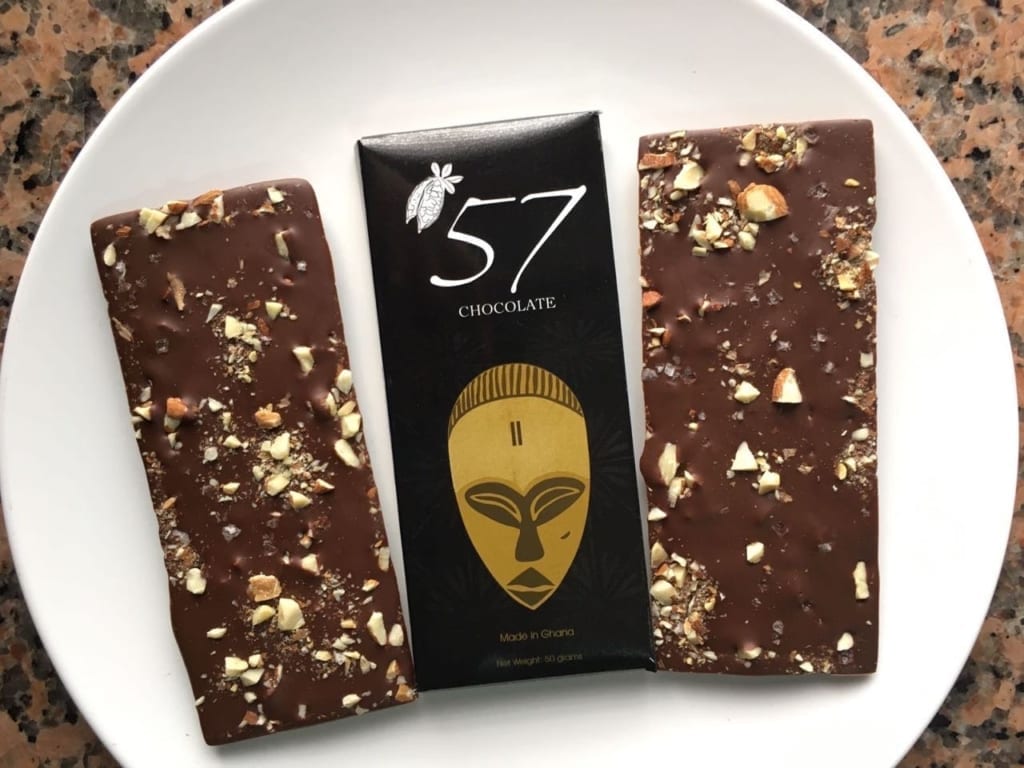
Also, we believe it is a great time to be in Africa. Africans and Africans in the Diaspora are showing the world that the continent has an incredible amount of potential, worth and creativity.
Entrepreneurs, change makers, and bloggers are writing a positive narrative for the continent—contrary to how the global media normally portrays the continent (e.g. typical depictions of abject poverty and civil war). We encourage the African youth to actively participate in contributing to this positive narrative.
For a complete list of 57 Chocolate products and to book a tasting, visit their website. Also check out their blog, “57 Things We Love about Ghana.”
